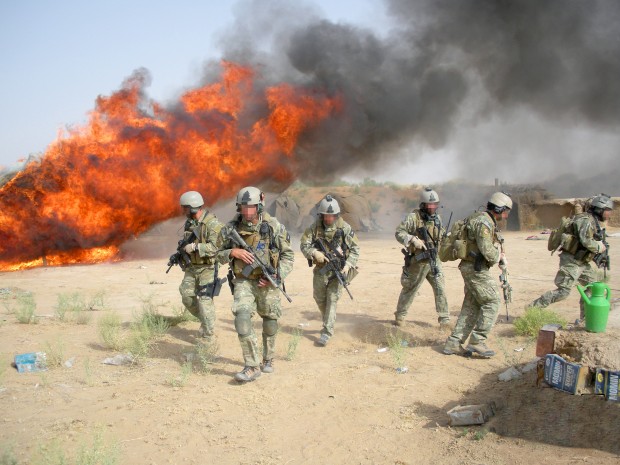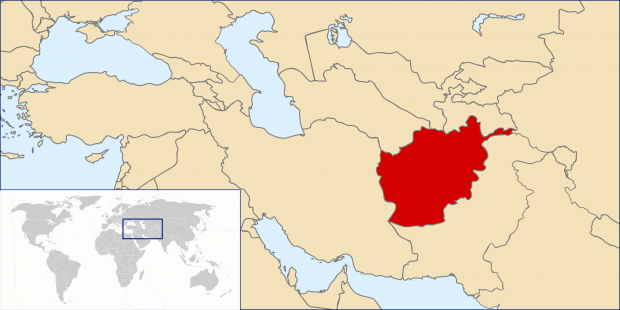
Afghanistan’s Future in the World Politics: The Prestige War
Afghanistan was one of the places where Russia and the United Kingdom clashed during the 19th century. This geopolitical rivalry went down in history as “The Great Game.” The United Kingdom aimed to keep away Russian influence from its Indian colony by capturing Afghanistan. The Great Game resulted with Afghanistan staying as a buffer state. The United Kingdom protected India from the Russian threat by reinforcing its dominance in Afghanistan. The Cold War era has once again rewritten the fate of Afghanistan. It can be hard to explain Soviet Union’s occupation of Afghanistan solely by geopolitical interests. In this regard, the incident is important because it was the last case of the Soviet policy of “regime exporting.” This study asserts that Afghanistan was a buffer state during the 19th century, a state with an imported regime in the 20th century, and a state where a race of attaining prestige took place in the 21st century.
When it is considered that the tax United Kingdom attained from India in the 19th century was almost one-fourth of its then entire national income, the economic importance of India for the United Kingdom is revealed. In this regard, Afghanistan was interpreted by the United Kingdom as a place where threats against India can be prevented in the first phase. Russia, on the other hand saw Afghanistan as a country with a strategic importance in their attempt to by-pass India, the foremost source of income of the United Kingdom. Afghanistan could not react to the wishes of these two great countries during the 19th century and in a way, accepted its “buffer state” identity.
Afghanistan reacted against the Soviet Union’s ‘regime export’-driven occupation policy and resisted the decision. However, the reaction that emerged during the era was not a “local” reaction revealed by Afghanistan for the future of the country, rather it was a “crossbred” reaction that came to sight as a direct result of the US’ support to local powers. In this regard, it can be claimed that Afghanistan’s failure in finding its own identity directly resulted in its disability to give shape to its own future. It can be said that the 19th and 20th centuries handed down two important legacies for Afghanistan. The first of these is leaving Afghanistan as a country dependent on foreign assistance in order to survive. The second is leaving Afghanistan in a state where it cannot control its own soil.

After the Cold War, the September 11 attacks took place in between the US’ Global Hegemony discussions, and once again pulled the attention towards Afghanistan. Afghanistan has become a matter of “prestige” in the US’ war on terror during the era of President George W. Bush. On this regard, they started the “Operation Enduring Freedom” which entailed that the US was to establish itself as the global hegemon. The US’s unrivalled intervention in Afghanistan, much different than the Great Game of the 19th century, was made as a tour de force. In a way the US demonstrated its existence in world politics through these operations, employed them as a means to maintain its “carrot and stick” policy. Indeed, the US’s operation in Afghanistan was supported by Russia within the context of counter-terrorism.
Although the US’s intervention was a success, it can be said that it failed in establishing a healthy Afghan state. Hence, the state of Afghanistan is still having troubles in establishing authority outside of Kabul. Russia on the other hand sees Afghanistan as the place where Soviet prestige was diminished. Hence, it can be said that a more important point that will give shape to the future of Afghanistan is Russia’s need to see Afghanistan as the place where it will establish itself in world politics once again. It has been reported that recently Russia exchanged information and intelligence with Taliban “in an attempt to tackle ISIS”. Especially as India and China enrich their powers in world politics and with Russia increasing its influence in Afghanistan, it can be said that Russia will once again augment its prestige. By contrast, in the case that Hillary Clinton, who appears to have got the upper hand in the latest polls, becomes president, it can be said that the US may return to its policy of using NATO more effectively. It is also probable for Russia to engage in a prestige struggle in Afghanistan, as it did in Ukraine against the US and NATO strategy of enlargement. As a result, Afghanistan’s future continues to be bound to the strategies of great powers.



